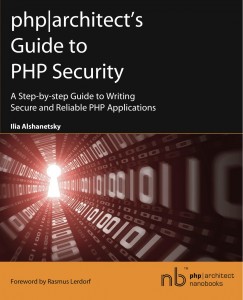Jakob Buchgraber on :
Something that I do not fully understand is, why there are constants like INPUT_(POST|GET|ENV...) defined as they are just another equivalent to the Superglobals. Are they faster or why do they make sense?
It would also be useful to be able to filter http uploads. e.g. FILTER_UPLOAD_IMAGE_JPEG,
FILTER_UPLOAD_EXECUTABLE
-- Jay
It would also be useful to be able to filter http uploads. e.g. FILTER_UPLOAD_IMAGE_JPEG,
FILTER_UPLOAD_EXECUTABLE
-- Jay







